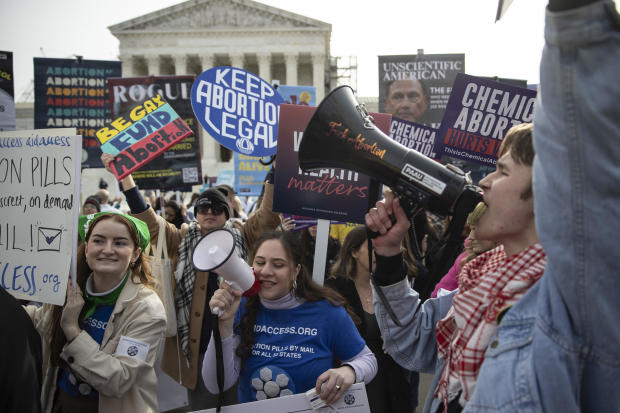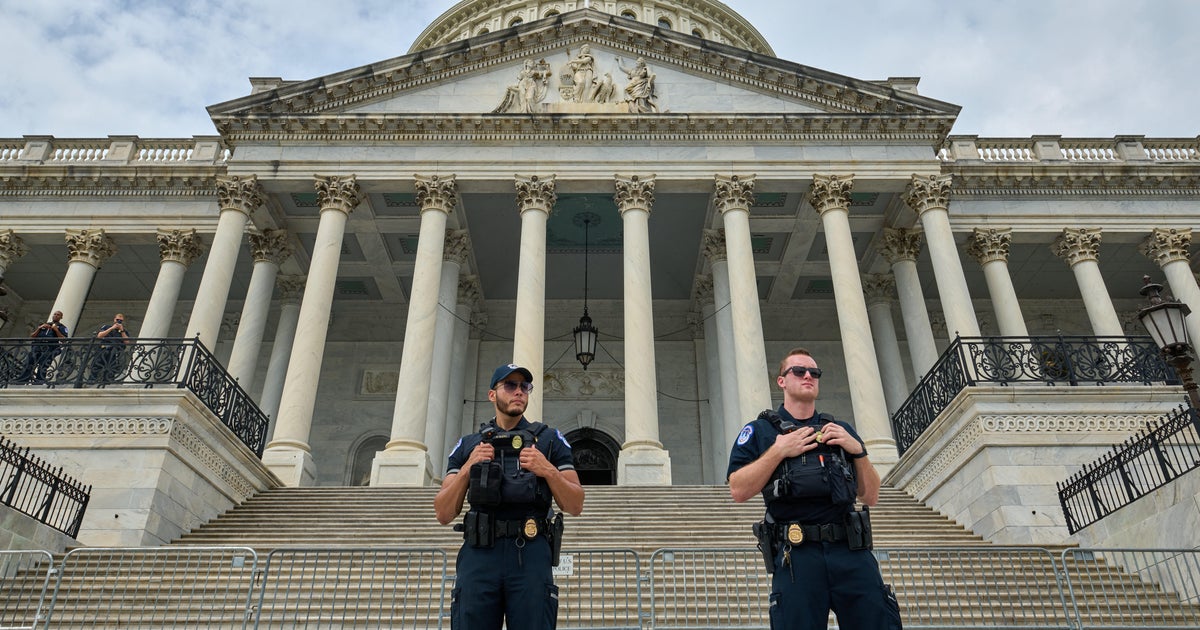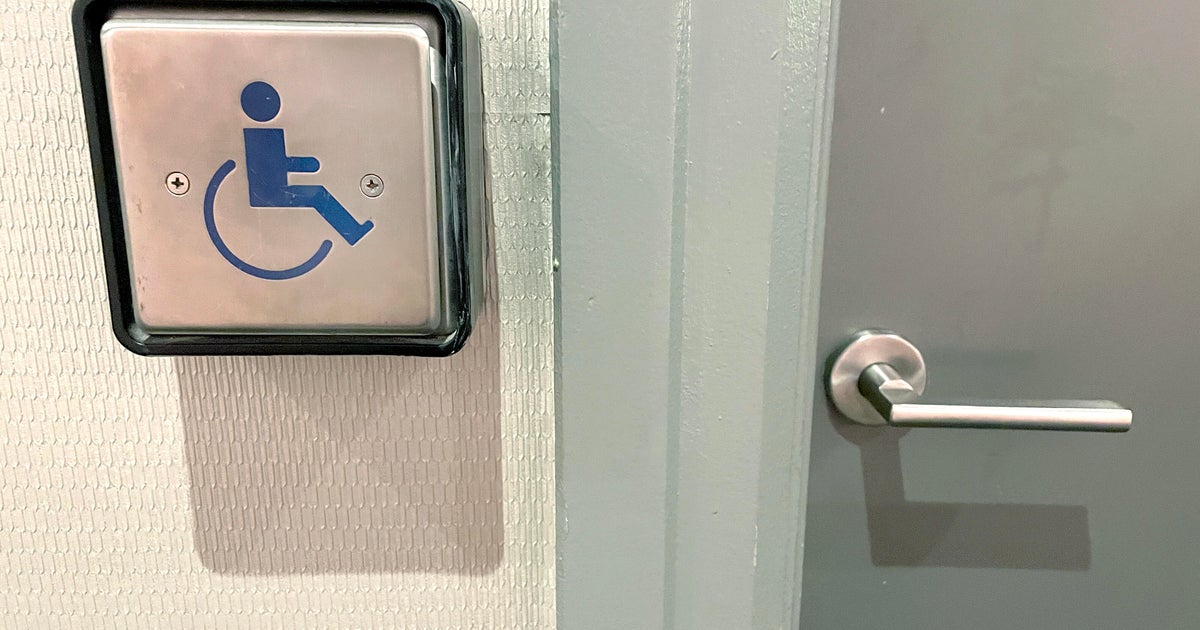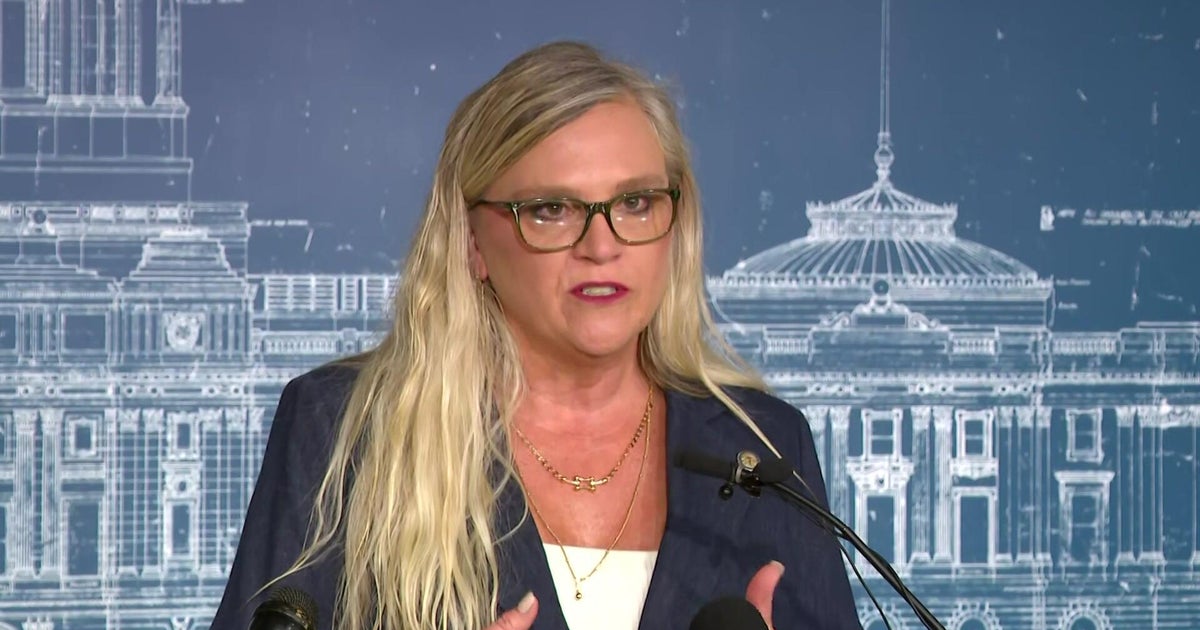Supreme Court preserves abortion pill access, rejecting mifepristone challenge
Washington — The Supreme Court on Thursday rejected a challenge targeting the availability of the widely used abortion pill mifepristone, preserving access to the drug in its first major abortion-related ruling since the reversal of Roe v. Wade.
The unanimous ruling from the justices was on procedural grounds. They determined that a group of anti-abortion rights doctors and medical associations who brought the lawsuit against the Food and Drug Administration did not have the legal right to do so.
In finding they lacked legal standing, the Supreme Court did not address whether the FDA acted lawfully when it took a series of steps in 2016 and 2021 that relaxed the rules for mifepristone's use.
"Under Article III of the Constitution, a plaintiff's desire to make a drug less available for others does not establish standing to sue. Nor do the plaintiffs' other standing theories suffice," Justice Brett Kavanaugh wrote for the court. "Therefore, the plaintiffs lack standing to challenge FDA's actions."
The decision does not foreclose other challenges targeting mifepristone, but it means that the FDA's recent steps that made the drug easier to obtain will remain in place. Those actions included allowing mifepristone to be taken later into a pregnancy, expanding the health care workers who can prescribe it and lifting an in-person dispensing requirement so the pill can be sent through the mail.
Three states — Idaho, Kansas and Missouri— sought to intervene in the case before the Supreme Court, but their request was denied. The federal district judge overseeing the case did, however, allow them to join the suit at the district court level. Erin Hawley, a lawyer with the Alliance Defending Freedom who argued on behalf of the doctors, said in a call with reporters that she expects litigation to continue with those states raising standing arguments that are different from those made by the doctors.
The Supreme Court's abortion pill case
The dispute brought by a group of anti-abortion rights doctors and medical associations was the first involving abortion that the Supreme Court heard in the wake of its blockbuster decision overturning Roe two years ago. If the challengers had prevailed, the ruling would have restricted access to mifepristone nationwide, even in states where abortion is legal.
Mifepristone is taken with a second drug, misoprostol, to end an early pregnancy. Since it was first approved by the FDA in 2000, mifepristone has been taken by more than 5 million patients, and serious adverse events as a result of mifepristone are "exceedingly rare," according to the agency. Medication abortions made up more than half of all abortions in the U.S. health care system in 2023, according to a study from the Guttmacher Institute, a pro-abortion rights research group.
The anti-abortion rights doctors alleged in a lawsuit filed in November 2022 that the FDA didn't have the authority to approve mifepristone for sale in the U.S. and failed to adequately consider the drug's safety and effectiveness. The suit targeted the FDA's 2000 approval of mifepristone and steps the agency took in 2016 and 2021 that made it more accessible.
Under those changes, mifepristone could be taken up to 10 weeks into a pregnancy, up from seven weeks; the number of in-person visits required was reduced from three to one; more health care providers could prescribe the drug; and it could be sent through the mail.
U.S. District Judge Matthew Kacsmaryk blocked the FDA's 2000 approval of the drug and its more recent actions, finding they were likely unlawful. Left intact, the ruling would have taken mifepristone off the market. But the Supreme Court eventually maintained access to the drug while the legal proceedings continued. A federal appeals court then scaled back Kacsmaryk's ruling, upholding the agency's green-light of mifepristone to be sold, but concluding that the agency likely violated the law with its 2016 and 2021 changes.
That decision, from the U.S. Court of Appeals for the 5th Circuit, was preempted by the Supreme Court's earlier order protecting the abortion drug's wide availability. But the ruling from the justices now dissolves that stay.
Pharmaceutical companies and former FDA officials warned that a ruling against the drug agency would affect other drugs beyond abortion medication. Drug companies said an adverse ruling would undermine the FDA's approval process for new medications and open the door to a slew of lawsuits challenging decisions made about drugs that have been on the market for years.
Since the Supreme Court rolled back the constitutional right to abortion, 14 states have imposed near-total bans with limited exceptions, while another seven outlaw the procedure at or before 18 weeks gestation. Fifteen states restrict access to medication abortion by requiring it to be provided by a physician, according to the Guttmacher Institute.
The Biden administration has undertaken a series of steps to expand access to medication abortion since Roe was overturned. The FDA in early 2023 finalized a rule to allow more retail pharmacies to dispense abortion pills as long as they complete a certification process. CVS and Walgreens, the nation's two largest pharmacy chains, became certified to sell the drug, clearing the way for them to begin selling the medications.
But anti-abortion rights groups and lawmakers have mounted their own efforts to restrict access to mifepristone. Louisiana Gov. Jeff Landry, a Republican, signed legislation in May that reclassified mifepristone and misoprostol as controlled substances and put them in the same category as opioids, depressants and others that can be addictive.
The Supreme Court's decision
Writing for the court on Thursday, Kavanaugh acknowledged that while the doctors who challenged the FDA's rules surrounding mifepristone have "sincere concerns and objections" to the use of the drug and obtaining abortions, they do not have the legal right to sue on the basis that others can "engage in certain activities." Because they failed to adequately show how they would be injured by the FDA's actions, federal courts are not the correct forum for addressing their concerns, the court determined.
"The plaintiffs may present their concerns and objections to the president and FDA in the regulatory process, or to Congress and the president in the legislative process," Kavanaugh wrote for the court. "And they may also express their views about abortion and mifepristone to fellow citizens, including in the political and electoral processes."
The group of doctors who brought the lawsuit do not prescribe or use mifepristone, the unanimous court found, and the FDA is not requiring them to do or refrain from taking any actions. The justices said the theories advanced by the doctors to establish standing to sue in federal court are "complicated," and they failed to show that they could be forced to participate in an abortion or provide abortion-related medical treatment over conscience objections.
"Federal law fully protects doctors against being required to provide abortions or other medical treatment against their consciences— and therefore breaks any chain of causation between FDA's relaxed regulation of mifepristone and any asserted conscience injuries to the doctors," Kavanaugh wrote.
The opinion noted there is no doctrine of "doctor standing" that allows physicians to challenge government safety regulations. The court said it will not create such a "novel" principle "out of whole cloth."
"Allowing doctors or other healthcare providers to challenge general safety regulations as unlawfully lax would be an unprecedented and limitless approach and would allow doctors to sue in federal court to challenge almost any policy affecting public health," Kavanaugh wrote.
He went on to note that in the FDA approval process, all drugs come with complications, risks and side effects, and approval of a new medication may lead to more doctors visits to treat any issues.
Addressing the concerns about the possible ramifications of a ruling on the drug-approval process, the court acknowledged that if it found the anti-abortion rights doctors and medical groups did have the proper basis to bring the lawsuit, it would open the door to "any doctor or healthcare provider" challenging any FDA decision giving the green light to a new drug.
Reaction to the ruling
In a statement, President Biden highlighted that mifepristone remains available, and women can continue to access the drug.
"Today's decision does not change the fact that the fight for reproductive freedom continues. It does not change the fact that the Supreme Court overturned Roe v. Wade two years ago, and women lost a fundamental freedom. It does not change the fact that the right for a woman to get the treatment she needs is imperiled if not impossible in many states," Mr. Biden said.
Hawley, the attorney who argued for the doctors, said in a statement that they were "disappointed" with the decision.
"We will continue to advocate for women and work to restore commonsense safeguards for abortion drugs — like an initial office visit to screen for ectopic pregnancies," she said.
Abigail Long, a spokeswoman for Danco Laboratories, the maker of mifepristone, said the drug company was pleased with the ruling.
"By rejecting the Fifth Circuit's radical, unprecedented and unsupportable interpretation of who has standing to sue, the justices reaffirmed longstanding basic principles of administrative law," Long said in a statement. "In doing so, they maintained the stability of the FDA drug approval process, which is based on the agency's expertise and on which patients, healthcare providers and the US pharmaceutical industry rely."








